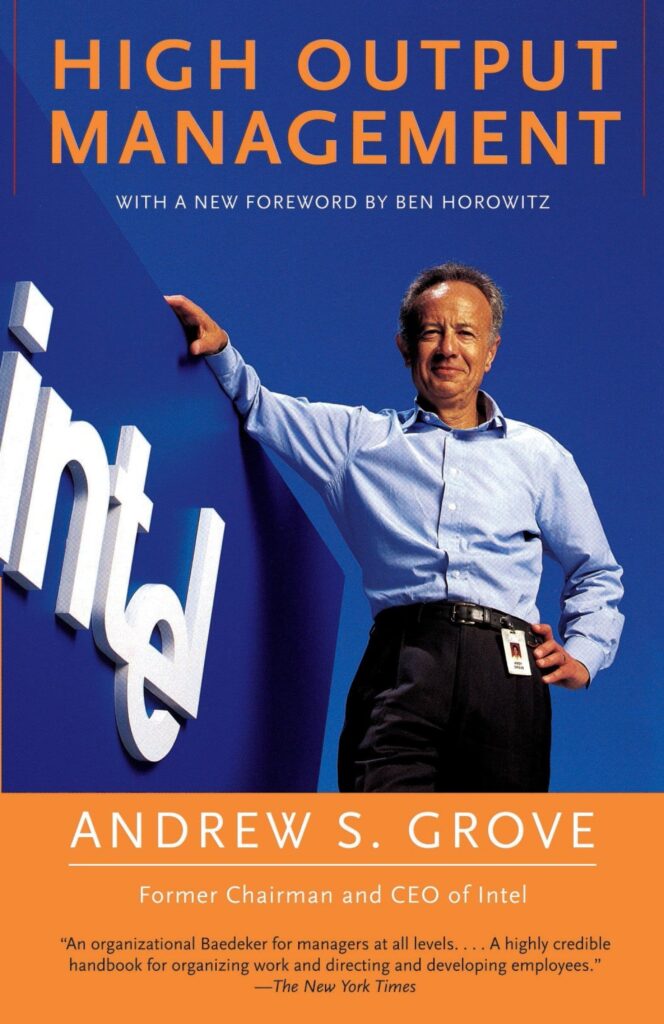High Output Management
Andrew S. Grove

In this legendary business book and Silicon Valley staple, the former chairman and CEO (and employee number three) of Intel shares his perspective on how to build and run a company.
The essential skill of creating and maintaining new businesses—the art of the entrepreneur—can be summed up in a single word: managing. Born of Grove’s experiences at one of America’s leading technology companies, High Output Management is equally appropriate for sales managers, accountants, consultants, and teachers, as well as CEOs and startup founders. Grove covers techniques for creating highly productive teams, demonstrating methods of motivation that lead to peak performance—throughout, High Output Management is a practical handbook for navigating real-life business scenarios and a powerful management manifesto with the ability to revolutionize the way we work.
Key Summary
“High Output Management” is a book by Andrew S. Grove, former CEO of Intel, that provides practical insights and advice on effective management in organizations. The book covers key topics such as managing teams, communication, decision-making, and strategy.
Takeaways
1. Develop a clear vision for your organization and ensure that everyone understands and is aligned with it.
2. Build and lead high-performing teams by fostering collaboration, motivation, and accountability.
3. Develop clear and effective communication strategies that ensure that everyone in the organization is informed and on the same page.
4. Make informed and effective decisions by gathering and analyzing data, considering multiple perspectives, and weighing the trade-offs.
5. Create and execute a clear strategy for growth and success by identifying and pursuing opportunities that align with your vision and strengths.
6. Foster a culture of continuous improvement by encouraging experimentation and learning from failures.
7. Establish clear processes and systems to support effective operations and scale your organization.
8. Manage risk by anticipating and preparing for potential challenges and adapting quickly to changing circumstances.
9. Invest in people development by providing opportunities for training, mentorship, and career advancement.
10. Lead with empathy and humility, treating employees with respect and creating an inclusive and supportive workplace culture.